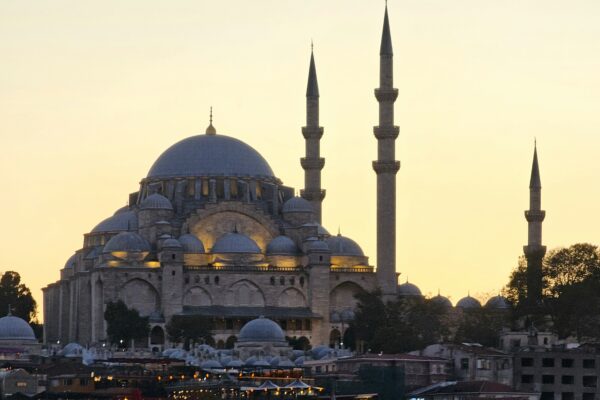Why is it that when a woman in the east chooses to wear a hijab, it is called maltreatment but when she is forced to remove it in the west, it is suddenly liberation?
Why is it that when a woman in the east chooses to wear a hijab, it is called maltreatment but when she is forced to remove it in the west, it is suddenly liberation?
I recall myself huddled under a blanket, my eyes fixed to the 24-inch screen as I attentively listened to Pakistani Prime Minister Imran Khan deliver his speech at the 2019 UN General Assembly.
With a string of demeaning labels to its name, including terms relating to illiteracy and corruption, Pakistan has always struggled to secure its position as a well-grounded and secure nation. But today I stand firm and proud of my Muslim heritage and the land of my ancestors; the soil of my childhood.
In his declaration, Khan highlighted various problems that many of us face as Pakistani Muslims on a day to day basis. However, never before have these issues been addressed effectively by a world leader on a platform such as the United Nations.
Before delving into the current problem though, it is imperative to discuss its roots. The tragedy of 9/11 raised many theories as to who was essentially involved in the attack. One of the alleged suspects was Al-Qaeda, a militant organization that spread terrorism falsely in the name of Islam. However, that is not how the reality is portrayed on media. The organization was and to this day is directly equated to Islam and the general Muslim population, and this association fallacy led to what we have now termed as Islamophobia.
What is of greater concern here though, is how world leaders and international forums have strategically and rather successfully manipulated the masses into believing that the world is progressing in the right direction. I tell you otherwise. In 1963, Martin Luther King had a dream that his “four little children will one day live in a nation where they will not be judged by the color of their skin but by the content of their character.” Today, we Muslims stand with aspirations that we and the generations to come will not be judged based on our faith and the religion we choose to follow, but once again, by the “content of our character”.
But the reality? I have witnessed my friends and relatives being pulled aside at airports because of their physical appearance, i.e. their beard or hijab. I have seen students terrified that they will not be able to study in the US simply because of their Muslim name. When a Muslim man is involved in a terrorist attack, Islam is put to blame; it is called out as ‘radical Islam’, however, if a white man is under the same circumstances, he is labeled on media channels as ‘psychologically ill.’ Why is it that when a woman in the east chooses to wear a hijab, it is called maltreatment but when she is forced to remove it in the west, it is suddenly liberation?
Furthermore, the year 2018 marked an increase in Islamophobia at alarming rates in Austria, France, Netherlands, and United Kingdom as well as in the rest of the world. The Office for Documenting Islamophobia and Anti-Muslim Racism in Austria stated in a report that an increase of approximately 74% of documented anti-Muslim racist acts was noticed in 2018. Vandalism at places of worship such as mosques also rose by around 50%, thereby breaching laws and resolutions focusing on the security and protection of individuals of all backgrounds.
Prime Minister Imran Khan stated in his speech:
There is only one Islam and that is the Islam of Prophet (PBUH)…there are radical fringes in every society, but the basis of all religion is compassion and justice.”
With the passage of time, it seems as though many of us have forgotten that we are after all, one human community. Divisions based on religion and backgrounds have caused marginalization, which has further provoked radicalization. This way, each and every single individual is to blame for attacks that take place in our world today. We might have failed our Pakistani founders, such as Mohammad Ali Jinnah, but there is still time to instill qualities such as tolerance, empathy, and equity in our children and create a pathway of action towards a more just system.
In the wise words of Helen Keller: “The greatest result of education is tolerance.” Keller was the first deaf-blind person to earn a Bachelor of Arts degree. And, with these wise words, I’ll conclude by simply stating that I need you to be the first to take a step to end Islamophobia to help better our world today.





